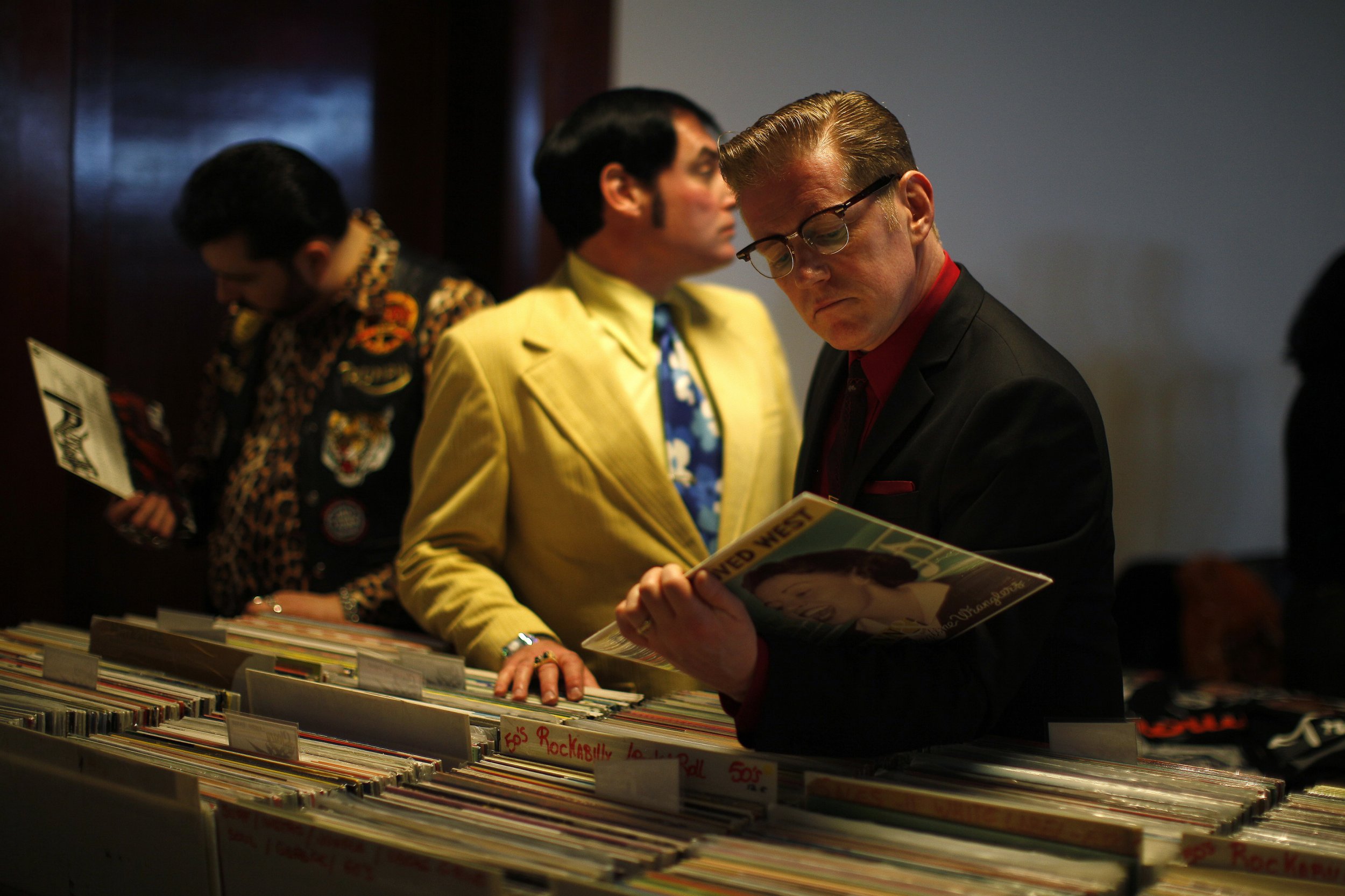
Ebola. ISIS. Downed airlines. Ukraine. 2014 threw up some confounding dilemmas. Our "Silver Bullets" series comes to the rescue with seven big solutions to some of the most complex problems the world is facing. But we also decided to turn our attention to some of the world's smallest problems, from getting out of a date with a click of your heels to an eternal question: Where am I going to find the perfect dive-bar T-shirt?
Each day for a week, we'll roll out one idea dreamed up by an enthusiastic entrepreneur or company to solve a problem that seems quite small in the context of the world's biggest issues, petty even. Unless it's your problem. Are these solutions as important, and as inspiring, as our "silver bullets"? No, but they prove once again that there are no limits to human ingenuity—or to the messes humans can cook up.
For the better part of a century, the vinyl record reigned supreme as the most popular format for listening to recorded sounds. The flat disc we recognize today was invented in the 1890s by Emile Berliner, a German-born American inventor, and replaced the cylinders Thomas Edison used for his 1877 phonograph. A testament to their unique charms, vinyl records survived the coming of the 8-track and the cassette tape, before being put out to pasture, more-or-less, by compact discs in the 1990s.
When it seemed clear that analog formats, of which vinyl is one, would give way to digital, some consumers rushed out to buy CDs. Others scrambled to convert their sometimes massive libraries of vinyl records to mp3s.
But now vinyl has seemingly risen from the grave. Just this past August, Jack White's Lazaretto, which he recorded and released especially for vinyl, became the best-selling vinyl record in 20 years. Across the board, 2014 was a great year for records: Approximately 7.6 million of them flew off store shelves, surpassing the 6.1 million records sold in 2013, according to Nielsen Music, which began tracking vinyl record sales in 1991.
With vinyl resurgent, some consumers now want to convert their digital music back into analog format. Enter a new crop of entrepreneurs looking to make a buck by helping consumers retrofit their music collections. For a price, websites like vinyl-pressing.com, edsvinyl.com, and vinylrecorder.com allow consumers to convert their mp3 files into vinyl records. Vinylrecorder, a German company, uses a machine of its own invention called the T-560 to accomplish this feat. Simply plug an audio source into the machine, the company claims, and it will "listen" to the input and cut the corresponding grooves into a blank vinyl record. The machine is available for purchase, but it will cost you nearly $4,000.
Digital recordings are made by representing analog sound waves as series of ones and zeroes. Audiophiles describe digital formats like mp3 as "lossy," because some of those ones and zeroes are lost during the compression process. Analog records, on the other hand, don't need to be compressed to fit comfortably on a hard drive or compact disc. Fans of the medium often describe vinyl recordings as warmer, somehow more intimate sounding, more full-bodied than their digital counterparts.
But when you transfer a digital recording like an mp3 to an analog format like a record, you're essentially getting a third-hand copy of the original. "If you had a really sharp picture and then put it in a newspaper and it had all those dots and then [you] tried to make it back into a sharp picture you couldn't, because most of the information was gone," says Steve Guttenberg, who covers high-end audio news for CNET. "You can go from high resolution to low, but you can't go from low resolution to high."
But if the sound were the only thing about vinyl that produced rose-tinted longing, there would be no market for mp3-to-vinyl converters. Perhaps more important than the music is the actual objects that hold it—the polyvinyl chloride discs in their big, cardboard sleeves. As Mark Richardson writes in Pitchfork, "There's the act of putting a record on, there is the comforting surface noise, there is the fact that LPs are beautiful objects and CDs have always looked like plastic office supplies."
Still, Guttenberg says he doesn't understand why these services exist. "Why wouldn't you just buy the record, as opposed to taking your crappy mp3 and making it into a record?" he asks. Would he consider listening to vinyls converted from mp3? "Only for some sort of perverse pleasure."
Previous stories in this series:
- You Look Stupid Taking a Photo With Your iPad, But It's OK
- For $199, This Cup Tells You What It's Holding
- A T-Shirt a Month Equals a Journey to America's Diviest Haunts
- A Remote Control For Your Whole Life
- New App Lets You Click Your Way Out of a Bad Date
Uncommon Knowledge
Newsweek is committed to challenging conventional wisdom and finding connections in the search for common ground.
Newsweek is committed to challenging conventional wisdom and finding connections in the search for common ground.
About the writer
Taylor is a general assignment reporter for Newsweek where he writes about U.S. politics, crime and courts, religion, marijuana law, ... Read more
To read how Newsweek uses AI as a newsroom tool, Click here.






